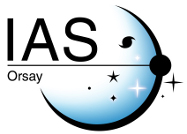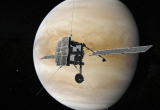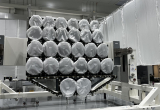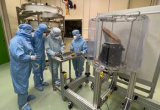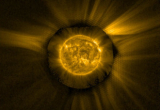Stellar and Solar Physics
Our team aims at providing answers to some key questions of solar and stellar physics, such as the heating process of the corona or the structure of solar and stellar interiors. The magnetic field playing a fundamental role in structuring the atmospheres of solar-type stars, it becomes possible to understand the coupling between the internal generation of magnetic field and its external signatures. The two major research topics are thus the dynamic and internal structure of the Sun and stars, and diagnostic and heating of the outer layers.
